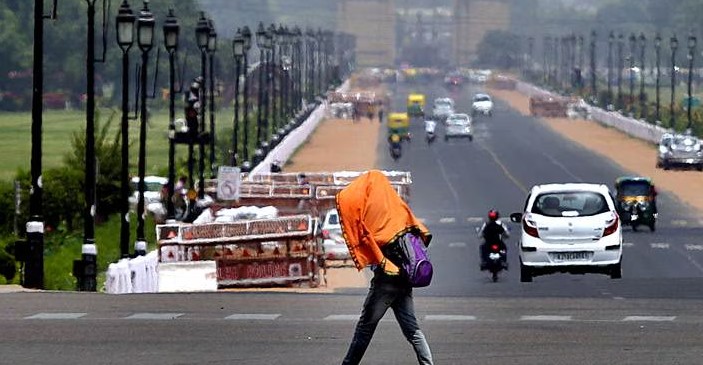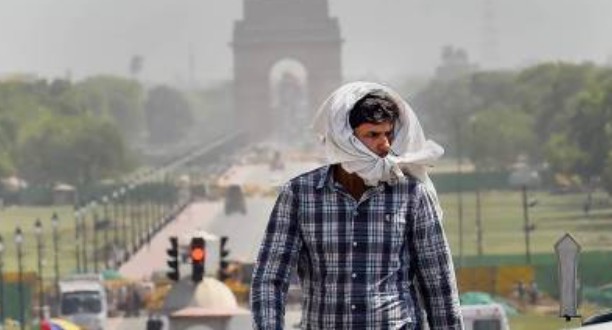As the temperature begins to rise across northern India, the Punjab Health Department has stepped forward with a timely advisory aimed at protecting citizens from the dangers posed by the anticipated heatwave. With meteorological warnings pointing to extreme temperatures in the coming days, the department has emphasized the urgent need for preparedness, community awareness, and individual caution to avoid health complications caused by prolonged exposure to heat.
The advisory, which has been disseminated across various districts through official circulars and public health channels, calls upon people from all walks of life to take preventive measures to safeguard themselves from heatstroke, dehydration, and other heat-related illnesses. Officials are particularly concerned about vulnerable sections of the population—such as children, the elderly, pregnant women, and outdoor workers—who are more susceptible to the harsh effects of soaring temperatures.
In a statement, senior officials from the Health Department mentioned that climate patterns in Punjab have shown a rising trend in average daytime temperatures over the past few years, with summer arriving earlier and staying longer than usual. According to forecasts from the India Meteorological Department (IMD), parts of Punjab could witness daytime highs touching or even exceeding 45 degrees Celsius in April and May. These extreme weather conditions, if not handled with care, could lead to a public health emergency, especially in urban areas where heat absorption due to concrete infrastructure amplifies the problem.
The advisory outlines several basic precautions that individuals can take to reduce health risks. Residents are being urged to avoid going outdoors between 11 a.m. and 4 p.m., when the sun’s rays are at their peak intensity. People whose jobs require them to work outdoors—such as laborers, street vendors, and farmers—are encouraged to take frequent breaks in shaded or well-ventilated areas, hydrate themselves at regular intervals, and wear light-colored, loose-fitting clothes that help keep the body cool. The Health Department is also working with labor departments, agriculture workers’ unions, and construction contractors to ensure that work schedules are adjusted to minimize direct exposure to heat during the hottest hours.

In an effort to extend public outreach, health centers, primary care clinics, and community workers have been instructed to educate people about early signs of heat exhaustion and heatstroke. Symptoms like excessive thirst, dry skin, dizziness, rapid heartbeat, fainting, and confusion should not be taken lightly, officials warn. If any of these signs are noticed, immediate steps such as moving the person to a cooler place, giving them fluids, and seeking medical help should be taken. Additionally, schools have been advised to take appropriate steps such as providing shaded areas, ensuring availability of clean drinking water, and possibly adjusting outdoor activity schedules to avoid exposure.
The Health Department is also working in collaboration with other state departments such as Disaster Management, Water Supply and Sanitation, and Education to implement a coordinated heatwave response plan. Water tankers are being deployed in areas facing shortages, and instructions have been given to ensure uninterrupted electricity supply, particularly to healthcare facilities, so that fans and cooling systems can function optimally. Community centers and government buildings are being identified where people can take shelter during extreme weather spells. Moreover, local bodies are being urged to activate helplines to assist people facing health emergencies due to the heat.
The advisory also appeals to the general public to be vigilant about the needs of their neighbors, particularly senior citizens and those living alone. The department encourages community-based approaches to ensure everyone, regardless of their social or economic background, can cope with the heatwave. Social workers, NGOs, and youth groups have been requested to spread the word and assist in distributing items such as oral rehydration salts (ORS), water bottles, and hats in high-risk areas.
At the district level, health officials are setting up dedicated emergency response teams to deal with any sudden spike in heatstroke cases. Hospitals have been instructed to stock up on necessary medicines, IV fluids, and emergency equipment to handle patients showing symptoms of heat-induced illnesses. Training sessions for medical professionals and paramedics are also being held to ensure they are prepared to respond effectively and promptly.
In urban areas like Ludhiana, Amritsar, and Jalandhar, local administrations have begun campaigns to raise awareness about heatwave safety using radio announcements, posters, and digital displays in public transport systems. In rural areas, Anganwadi workers and ASHA (Accredited Social Health Activist) workers are going door to door to inform villagers, especially the elderly and mothers of young children, about precautions to take. Special attention is being given to high-risk localities where people live in cramped, poorly ventilated homes without access to air conditioning.
The Chief Minister of Punjab has lauded the Health Department’s proactive measures and reiterated the government’s commitment to ensuring that no citizen suffers needlessly due to preventable causes like heatstroke. He also urged people to follow the advice being issued by the authorities, stressing that simple steps such as staying indoors during peak hours, drinking plenty of fluids, and helping those in need can go a long way in preventing tragedies.
Medical experts are also cautioning the public against the use of alcohol and caffeine during the heatwave, as these substances contribute to dehydration. They also advise people to consume seasonal fruits like watermelons and cucumbers, which help the body stay cool and hydrated. Meanwhile, food safety is another area of concern. With food spoilage increasing in the heat, residents are being urged to eat freshly prepared meals and avoid food that has been kept outside for long durations.
With summer only beginning to unfold and heatwaves expected to intensify in the coming weeks, the Health Department’s advisory is seen as a much-needed step in building public awareness and resilience. By promoting a culture of prevention, preparedness, and cooperation, Punjab aims to minimize the human cost of climate-related stress on its population.


